I'm going to assume the readers who make it to this article are well informed enough that I don't have to go into the history of the global money changers and their desire for a one-world currency.
Was Bitcoin Created By The NSA in 1996?
(If you don't yet understand the goal of the globalist banking empire and the coming engineered collapse of the fiat currency system, you're already about 5,000 posts behind the curve.)
With that as a starting point, it's now becoming increasingly evident that Bitcoin may be a creation of the NSA and was rolled out as a "normalization" experiment to get the public familiar with digital currency.
Once this is established, the world's fiat currencies will be obliterated in an engineered debt collapse (see below for the sequence of events), then replaced with a government-approved cryptocurrency with tracking of all transactions and digital wallets by the world's western governments.
NSA mathematicians detailed "digital cash" two decades ago
What evidence supports this notion?
First, take a look at this document entitled, "How to Make a Mint - The Cryptography of Anonymous Electronic Cash." This document, released in 1997 - yes, twenty years ago - detailed the overall structure and function of the Bitcoin cryptocurrency.
Who authored the document?
Try not to be shocked when you learn it was authored by,
"mathematical cryptographers at the National Security Agency's Office of Information Security Research and Technology."
The NSA, in other words, detailed key elements of Bitcoin long before Bitcoin ever came into existence.
Much of the Bitcoin protocol is detailed in this document, including signature authentication techniques, eliminating cryptocoin counterfeits through transaction authentication, and several features that support anonymity and untraceability of transactions.
The document even outlines the heightened risk of money laundering that's easily accomplished with cryptocurrencies. It also describes "secure hashing" to be "both one-way and collision-free."
Although Bitcoin adds mining and a shared, peer-to-peer blockchain transaction authentication system to this structure, it's clear that the NSA was researching cryptocurrencies long before everyday users had ever heard of the term.
Note, too, that the name of the person credited with founding Bitcoin is Satoshi Nakamoto, who is reputed to have reserved one million Bitcoins for himself.
Millions of posts and online threads discuss the possible identity of Satishi Nakamoto, and some posts even claim the NSA has identified Satoshi.
However, another likely explanation is that Satoshi Nakamoto is the NSA, which means he is either working for the NSA or is a sock puppet character created by the NSA for the purpose of this whole grand experiment.
As The Hacker News (THN) explains.
"The integrity of Bitcoin depends on a hash function called SHA-256, which was designed by the NSA and published by the National Institute for Standards and Technology (NIST)."
THN also adds:
"If you assume that the NSA did something to SHA-256, which no outside researcher has detected, what you get is the ability, with credible and detectable action, they would be able to forge transactions.
The really scary thing is somebody finds a way to find collisions in SHA-256 really fast without brute-forcing it or using lots of hardware and then they take control of the network."
Cryptography researcher Matthew D. Green of Johns Hopkins University said.
In other words, if the SHA-256 hash, which was created by the NSA, actually has a backdoor method for cracking the encryption, it would mean the NSA could steal everybody's Bitcoins whenever it wants (call it "Zero Day.")
That same article, written by Mohit Kumar, mysteriously concludes,
"Even today it's too early to come to conclusions about Bitcoin. Possibly it was designed from day one as a tool to help maintain control of the money supplies of the world."
And with that statement, Kumar has indeed stumbled upon the bigger goal in all this:
To seize control over the world money supply as the fiat currency system crumbles and is replaced with a one-world digital currency controlled by globalists.
Think cryptography is bulletproof? Think again…
Lest you think that the cryptography of cryptocurrency is secure and bulletproof, consider this article from The Hacker News, 'Researchers Crack 1024-bit RSA Encryption in GnuPG Crypto Library,' which states,
"The attack allows an attacker to extract the secret crypto key from a system by analyzing the pattern of memory utilization or the electromagnetic outputs of the device that are emitted during the decryption process."
Note, importantly, that this is a 1024-bit encryption system.
The same technique is also said to be able to crack 2048-bit encryption. In fact, encryption layers are cracked on a daily basis by clever hackers.
Some of those encryption layers are powering various cryptocurrencies right now. Unless you are an extremely high-level mathematician, there's no way you can know for sure whether any crypto currency is truly non-hackable.
In fact, every cryptocurrency becomes obsolete with the invention of large-scale quantum computing.
Once China manages to build a working 256-bit quantum computer, it can effectively steal all the Bitcoins in the world (plus steal most national secrets and commit other global mayhem at will).
Bitcoin Is A Deep State Conspiracy? ₿, NSA, FBI, Snowden, and Satoshi
Ten steps to crypto-tyranny - The "big plan" by the globalists (and how it involves Bitcoin)
In summary, here's one possible plan by the globalists to seize total control over the world's money supply, savings, taxation, and financial transactions while enslaving humanity.
And it all starts with Bitcoin...
Roll out the NSA-created Bitcoin to get the public excited about a digital currency.
Quietly prepare a globalist-controlled cryptocurrency to take its place. (JP Morgan, anyone...?)
Initiate a massive, global-scale false flag operation that crashes the global debt markets and sends fiat currencies down in flames (hoax alien invasion, hoax North Korean EMP attack, mass distributed power grid terrorism network, etc.)
Blame whatever convenient enemy is politically acceptable (North Korea, "the Russians," Little Green Men or whatever it takes…)
Allow the fiat currency debt pyramid to collapse and smolder until the sheeple get desperate.
With great fanfare, announce a government-backed cryptocurrency replacement for all fiat currencies, and position world governments as the SAVIOR of humanity. Allow the desperate public to trade in their fiat currencies for official crypto currencies.
Outlaw cash and criminalize gold and silver ownership by private citizens. All in the name of "security," of course.
Criminalize all non-official cryptocurrencies such as Bitcoin, crashing their value virtually overnight and funneling everyone into the one world government crypto, where the NSA controls the blockchain. This can easily be achieved by blaming the false flag event (see above) on some nation or group that is said to have been "funded by Bitcoin, the cryptocurrency used by terrorists."
Require embedded RFID or biometric identifiers for all transactions in order to "authenticate" the one-world digital crypto currency activities. Mark of the Beast becomes reality. No one is allowed to eat, travel or earn a wage without being marked.
Once absolute control over the new one-world digital currency is achieved, weaponize the government-tracked blockchain to track all transactions, investments and commercial activities. Confiscate a portion of all crypto under the guise of "automated taxation." In an emergency, the government can even announce negative interest rates where your holdings automatically decrease each day.
With all this accomplished, globalists can now roll out absolute totalitarian control over every aspect of private lives by enforcing financial "blackouts" for those individuals who criticize the government.
They can put in place automatic deductions for traffic violations, vehicle license plate taxes, internet taxes, and a thousand other oppressive taxes invented by the bureaucracy.
With automatic deductions run by the government, citizens have no means to halt the endless confiscation of their "money" by totalitarian bureaucrats and their deep state lackeys.
How do you feel about your Bitcoin now...?
The NSA also wrote the crypto hash used by Bitcoin to secure all transactions
On top of the fact that the NSA authored a technical paper on cryptocurrency long before the arrival of Bitcoin, the agency is also the creator of the SHA-256 hash upon which every Bitcoin transaction in the world depends.

by James Rickards
September 5, 2017
from DailyReckoning Website
As an economic system, Technocracy needs an appropriate type of currency as an accounting system, and blockchain technology is a likely foil.
However, Technocrats in the 1930s said that energy was the only appropriate accounting system.
As I read this, I would fully expect to see a global blockchain system having some relation to, or 'peg', to either carbon or energy itself.
Either way, the days of the 'wild west' for Bitcoin may be in jeopardy.
Interest in Bitcoin is red hot at the moment. It's impossible to open a website, listen to a podcast, or watch a video in the financial space without hearing about the meteoric rise in the price of Bitcoin.
Maybe you know a "Bitcoin millionaire" who bought five hundred Bitcoins a few years back for $50,000 and is now sitting on a Bitcoin fortune worth over $2,000,000.
It's true, those people actually do exist.
Yet the crypto-hysteria is distracting you from a scary truth no one is talking about. There is every indication that governments, regulators, tax authorities, and the global elite are moving in for the crypto-kill.
The future of Bitcoin may be a dystopia in which Big Brother controls what's called "the blockchain" and decides when and how you can buy or sell anything and everything.
Furthermore, cryptocurrency technology could be the very mechanism used by global elites to replace the dollar-based financial system.
In 1958, Mao Zedong, the leader of the Communist Party of China and China's dictatorial leader was confronted with demoralized intellectuals and artists who were alienated by Communist rule.
As a policy response, he declared a new policy of intellectual freedom.
Mao declared,
"The policy of letting a hundred flowers bloom and a hundred schools of thought contend is designed to promote the flourishing of the arts and the progress of science."
This declaration is referred to as the "Hundred Flowers Campaign" (often misquoted as the "thousand flowers campaign").
The response to Mao's invitation was an enthusiastic outpouring of creative thought and artistic expression.
What came next was no surprise to those familiar with the operation of state power. Once the intellectuals and artists emerged, it was easy for Mao's secret police to round them up, kill and torture some, and send others to "reeducation camps" where they learned ideological conformity.
The Hundred Flowers Movement was a trap for those who placed their trust in the state.
It was also a taste of things to come in the form of the much more violent and comprehensive Cultural Revolution of 1964-1974 in which all traces of Chinese bourgeoisie culture and much of China's historical legacy were eradicated.
Something similar is going on with Bitcoin and the Distributed ledger technology (DLT) today. Governments have been patiently watching blockchain technology develop and grow outside their control for the past eight years.
Libertarian supporters of blockchain celebrate this lack of government control. Yet, their celebration is premature, and their belief in the sustainability of powerful systems outside government control is naïve.
Governments don't like competition especially when it comes to money. Governments know they cannot stop blockchain, in fact, they don't want to.
What they want is to control it using powers of regulation, taxation, and investigation and ultimately more coercive powers including arrest and imprisonment of individuals who refuse to obey government mandates with regard to blockchain.
Blockchain does not exist in the ether (despite the name of one cryptocurrency) and it does not reside on Mars.
Blockchain depends on,
critical infrastructure including servers
telecommunications networks
the banking system
the power grid,
...all of which are subject to government control.
A group of major companies, all regulated by the government, have announced a joint effort to develop an open-source blockchain as a uniform standard for all blockchain applications.
The group includes,
JPMorgan
Wells Fargo
State Street
SWIFT
Cisco
Accenture
the London Stock Exchange
Mitsubishi UFJ Financial
That's not exactly five guys in hoodies working in a garage. That's a sign of the corporate-state consortium taking over.
An elite U.S. legal institution called the Uniform Law Commission (ULC), that proposes model laws intended for adoption in all fifty states, has released its latest proposal called the "Uniform Regulation of Virtual Currency Businesses Act."
This new law will not only provide a regulatory scheme for state regulators but will also be a platform for litigation by private plaintiffs and class action lawyers seeking recourse against real or imagined abuses by digital coin exchanges and facilities.
Once litigation begins, anonymity is the first casualty.
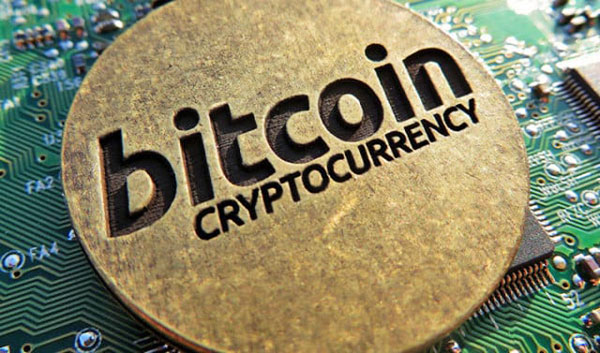
Cryptocurrencies and the Super-Elites Plan
Consider the following additional developments:
On August 1, 2017, the SEC announced "Guidance on Regulation of Initial Coin Offerings," the first step toward requiring fundraising through blockchain-based tokens to register with the government.
On August 1, 2017, the World Economic Forum, host body to the Davos conference of global super-elites, published a paper entitled "Four reasons to question the hype around blockchain."
On August 7, 2017, China announced they will begin using blockchain to collect taxes and issue "electronic invoices" to citizens there.
Perhaps most portentously, the International Monetary Fund (IMF) has weighed in. In a special report dated June 2017, the IMF had this to say about blockchain:
"Distributed ledger technology (DLT), in particular, could spur change in the financial sector... DLT can be categorized as "permissionless" or "permissioned" depending on who can participate in the consensus-driven validation process.
Permissionless DLTs allow anyone to read, transact on, and participate in the validation process. These open schemes (that underlie Bitcoin, for instance) could be very disruptive if successfully implemented.
By contrast, in permissioned DLTs, the validation process is controlled by a pre-selected group of participants ("consortium") or managed by one organization ("fully-private"), and thus serve more as a common communications platform."
IMF releases require expert translation because they are never written in plain English, and the real meaning is always hidden between the lines.
But, the thrust of this report's language is clear. The IMF favors "permissioned" systems over "open schemes." The IMF also favors control by a "pre-selected group of participants" or "one organization," rather than allowing "anyone" to participate.
This paper should be viewed as the first step in the IMF's plan to migrate its existing form of world money, the special drawing right or SDR, onto a DLT platform controlled by the IMF.
In time, all other forms of money would be banned.
These and other developments all point toward an elite group including,
the IMF
JPMorgan
the Davos crowd
the IRS
SEC,
...and other agencies converging to shut down the existing free-wheeling blockchain ecosphere, and replace it with a "permissioned" system under "consortium" control.
Big Brother is coming to the blockchain...

by Justin O’Connell
TDV Researcher
April 4, 2013
from DollarVigilante Website
Justin O’Connell, the researcher at The Dollar Vigilante, runs Gold Silver Bitcoin and is a co-founder of BitcoinATM. He also writes at the Dollar Vigilante-inspired site, Silver Vigilante. Justin studied History and German Language at Linfield College in McMinnville, Oregon, where, in his spare time, he researched current events and their relationship to history. In his studies, he has found that societies have been managed by philosophically-kindred ruling classes seeking persistently a singular, total order across the planet. Justin does not believe in government as a medium for human relationships, preferring instead the race of human ideas stemming from a diverse, vibrant culture. |
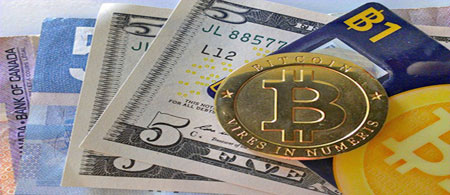
As a general rule, if anything is covered en masse by the mainstream media, then I tend to believe that which I am watching is actually one long promotional spot.
The same could potentially be said for Bitcoin as over the past months its popularity has grown so much that “anarcho-capitalist... Libertarian... Freedom Fighter against mankind’s two biggest enemies, the State and Central Banks,” Dollar Vigilante Chief Editor, Jeff Berwick, has been on CNBC, CNN, Fox News, BBC, and other mainstream outlets.
What brought on this sudden attention? No, not our anarcho-capitalism, but our announcement of the world’s first BitcoinATM.
So, is Jeff just a patsy so that the New World Order can bring in a digital currency? I began wondering this myself, and I came to what I think is a reasonable conclusion.
What many skeptics fail to understand is that the so-called New World Order - with its global governance, fiat currencies and so on - has already, for the most part, been implemented on a global scale. Especially economically.
For instance, 95%+ of fiat money today is digital, and it's all based on the Federal Reserve System, thus creating one worldwide currency with lots of different designs on the actual notes supposedly representing the various cultural backgrounds of nation-states.
Despite nearly everything being digital already, there are mainstream technologies that go above and beyond, aiming to rule out the need for cash. One particular app for this cashless society, above-and-beyond credit, and debit is called Square and was developed by Jack Dorsey, Twitter’s co-founder.
According to CNN,
“this is a telltale signs that the mobile-payments revolution has arrived.”
CNN writes, as anyone who has studied American consumers know,
“changing the way Americans pay for stuff is going to be really hard work.”
But Bitcoin is turning out to be a force to be reckoned with.
For instance, in comparison to long-time friends of the liberty movement, gold, and silver, Bitcoin seems to have been the play to make over the past six months and beyond.
For months, besides today's drop from $150-$115, after running to $150 from $105, our charts over at Gold Silver Bitcoin have shown a bimetallic standard precipitously dropping relative to Bitcoin:
The CNN article surmises that,
“Paying by phone will be as transformative as the advent of the credit card in the 1950s. It will change the way we shop and bank.
With powerful smartphones and tablets taking center stage on both sides of the checkout counter, it will reshape the relationship between buyer and seller.
Not only will the phone or the tablet become a wallet for consumers, but it will also turn into a credit card reader and a register for merchants.
Shoppers will use their mobile device as a coupon book, a comparison-shopping tool, and a repository of those unwieldy loyalty cards they carry from everyone from giant retail chains to the corner bakery.
And your smartphones will serve as beacons that will alert a retailer when you walk into its store so that it can recommend products, show you reviews, or direct you to aisle five, where that beanbag chair you didn’t buy last week still beckons - and you can now have it for 10% off.
You won’t even need a few singles to tip the valet or pay the dog walker, because they’ll take mobile payments too.”
This basically explains the Bitcoin experience.
One big difference? While CNN assumes a central authority, Bitcoin does not. With big players like AT&T, Verizon, Visa, Mastercard, Google, Microsoft, and eBay’s PayPal unit investing billions in digital payment solutions, it is no surprise that the mainstream media is serving the idea to the public domain in kind and uncritical ways.
One of their assumptions is a monopoly on the technology by some corporation friendly to compromising.
While the mainstream press has been unable to ignore Bitcoin, it certainly has been critical of Bitcoin is prone to hackers. Sure, a great many people have lost bitcoins.
But, imagine if the general population had to become their own banks. Most of them would get eaten right away by sharks in the economic waters.
The CNN article champions the ease of digital transactions, and the time saved.
Bitcoin is surely faster:
“While this revolution will be powered by complex technology, its ultimate effect will be to greatly simplify things for consumers. Think about my experience at Grumpy.
While I had to fiddle with my phone ahead of time - to upload my credit card to the Square app and to authorize it to talk to the Grumpy register - once there, the phone never left my pocket. All I had to do was order my cappuccino.”
The article portends that,
“a cashless future is more real than many suspect.”
According to the global head of mobile at Visa,
“financial institutions are going to have a big role to play.”
“We are, I think, on a precipice of some fundamental change in the way money is exchanged between consumers and businesses,” Rep. Shelley Moore Capito, R-W.Va., said as she opened the first of a string of hearings one year ago on cashless ways.
The Federal Reserve found that 12 percent of cell phone users had already made a payment through their phones, and almost two-thirds of technology experts surveyed by the Pew Center on Internet and American Life said they expected mobile payments to eclipse cash and credit cards by 2020.
But, Square and similar technologies are different from Bitcoin.
Bitcoin has caught on with a younger generation that, as Trace Mayer once put it to me (to paraphrase),
“grew up in a digital sea. [The younger generation] are fish in a digital sea, whereas the older generation are snorkeling tourists.”
In other words, p2p technology is a concept in and of itself for the Internet-literate. That goes a long way to explaining its popularity.
As the late Bob Chapman of the International Forecaster asked about gold and silver relative to fiat, “where else are you going to go” in a time of ubiquitous deceit? Bitcoin offers yet another alternative to what I’ve coined a “rebel’s portfolio” already heavy in silver and gold.
The pseudonymous nature (read: not totally anonymous) of Bitcoin does associate IPs with wallets.
But, the paper trail is a more obtuse alternative to the traditional bank account. The Powers That Be (TPTB) focus intensely on record-keeping, the historical record shows this, and so any added time-cost for their zeroing in on you acts as the new privacy.
The popular appeal of Bitcoin - its p2p foundation - is as simple as the first language to the younger generation. Trace explains this well.
Max Keiser recently said that he called gold in 2008, and people asked,
“What if the government confiscates my gold?”
To which Max Keiser responds,
“What you should have been asking yourself is, 'What if the government confiscates my bank account?'”
He then goes on:
“Since $5 per BTC I’ve been recommending Bitcoin and many of you asked, ‘What if the government shuts off the Internet?’”
Max Keiser answers thus:
“What you should have been asking yourselves is, ‘What if the government shuts down the banks?”
And so, there are fundamental differences between the digital payment technologies pursued publicly by TPTB, and Bitcoin.
This is what caught the eye of so many tech-savvy and Austrian-minded individuals across the world, but largely concentrated in the US and greater North America. Now, with Bitcoin skyrocketing from $9.31 last Fall to $150 today, the power of the Internet has never been clearer.
Bitcoin is a bet on the Internet. And, if you read our recent TDV Homegrown issue, you might have learned something about the Egyptian experience with a government using the "internet kill switch."
I wrote:
“Over one year ago, the Egyptian government cut off approximately 88% of the country’s internet access. Here is what happened: The government owned the biggest Internet provider in the nation, and only had to contact a few other companies to make this happen.
The government ordered the shutdown of nearly all Internet access within Egypt. Ninety-three percent of Egypt’s networks went down. One of the only connections to the Internet that was not blocked belongs to Noor Data Network, the ISP used by the Egyptian (stock) Exchange.”
I then went over some of the ways Egyptians worked around this Internet shutdown, as well as the likelihood of it happening in the US.
The conclusion of the article was bullish for the Internet, for the Internet is a vibrant and evolving system.
It is crucial to everyone's way of life, and we see this with centralized and decentralized payment solutions. The Internet will continue to be defended by its users and impinged upon by its self-appointed overseers.
It's a battle in which any Dollar Vigilante would delightfully indulge.
Editor's Note: News of Jeff's latest Bitcoin venture along with a list of Bitcoin-related business opportunities are in the pages of the latest TDV Dispatch, which is available only to subscribers. To learn more about becoming a TDV subscriber, and getting access to more in-depth analysis and actionable ideas, just click here now.


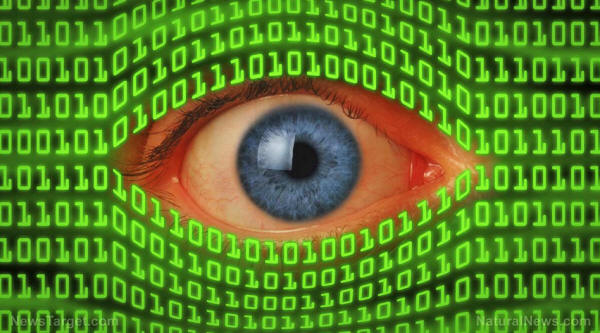
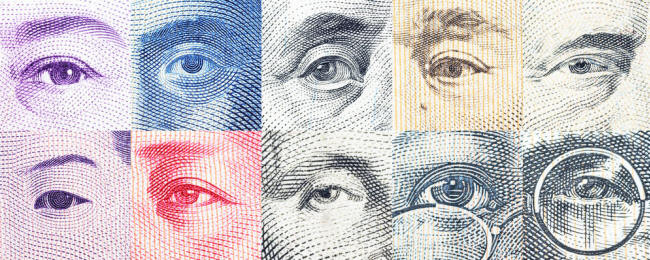
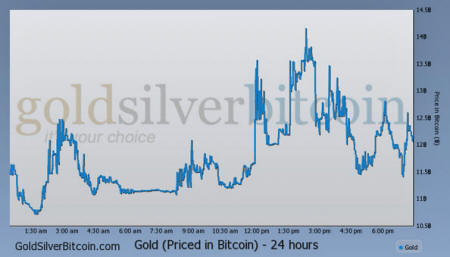
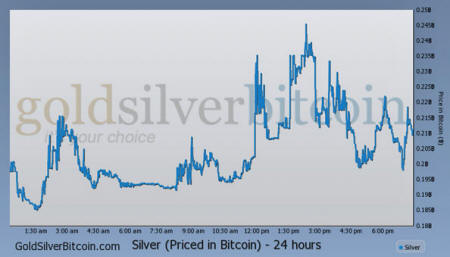


No comments:
Post a Comment